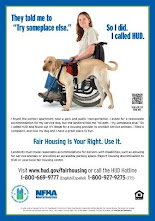A documentary Diminished Returns: The Black Wealth Gap in Washington, D.C. has been released examining the travails of the Black Julien family and similar stories to explain the huge wealth gap between Black and White Washington. The film was written and directed by Dr. Sabiyha Prince and executive produced by Temi F. Bennett. The documentary, which debuted in the District in 2024, is a product of iF, A Foundation for Radical Possibility. The documentary features District leaders such as D.C. Councilmember Kenyan McDuffie (I-At Large), historian G. Derek Musgrove, and anti-mass incarceration activist Tony Lewis Jr., talking about how the racial wealth gap negatively impacts Blacks economically, politically, and socially.
The Black Julien family - direct descendants of George and Martha Washington’s enslaved maid - had 0.38 acres of land and a house on Broad Branch Road in Northwest Washington. In the spot where it once stood is now a basketball court. It was taken from the family by the federal government’s D.C. Commission in 1931. Because they were Black. “The Presence of this house, with its colored occupants, so close to a white school is a source of possible friction that is thought desirable to remove,” Assistant Engineer Commissioner H.L. Robb explained in the Evening Star. They were not evicted because the new School needed the space: the new all-White Lafayette School was nearly constructed when the family was told to leave, and it was made clear why. This was the end of Chevy Chase as a thriving Black neighborhood.
The filmmakers examine the way these forced evictions and continuing housing discrimination have left the District’s White households with 81 times the median savings and assets as its Black households, a 2016 report showed. “It’s happening all over the country,” said Prince. “It’s repeated, and it has devastating impacts on the economies of Black households and what they can hand down to their progeny moving forward, right? Because that’s a key way in which people accumulate wealth, through inheritances,” Prince said. History and data show that lack of consideration for equity over centuries created the wealth gap.
The film makes the argument for giving reparations to families such as the Juliens in D.C. to right this wrong. And the filmmakers believe the nation’s capital is the best place to do this because there is a precedent. On April 16, 1862, President Abraham Lincoln signed the “Act for the Release of certain Persons held to Service or Labor within the District of Columbia.” That paid former enslavers $300 for every person who was emancipated - 3,100 in total. That cost the U.S. government $930,000, almost $30 million today.
In total, the Julien family was forced out three times. In addition to the Broad Branch Road incident, Black homes part of “Freedman’s Village,” built for emancipated people to restart their lives in 1863, were seized in 1900 with the land incorporated into Arlington National Cemetery. Another was after Julien’s family moved to Irving Street in Northwest Washington but was displaced when a school was built there, Julien said in an oral history interview with the Historic Chevy Chase D.C. The historic society currently has an educational project "Black Land Loss: Chevy Chase DC in the Arc of American History: Tracing a Black Enclave from the 18th to the 21st Centuries."







